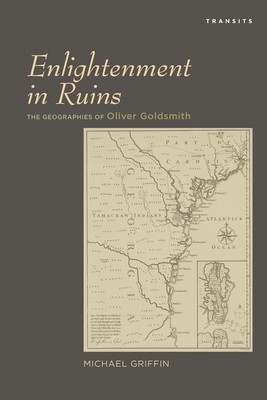
- We will send in 10–14 business days.
- Author: Michael Griffin
- Publisher: Bucknell University Press
- ISBN-10: 1611486890
- ISBN-13: 9781611486896
- Format: 15.2 x 22.9 x 1.5 cm, minkšti viršeliai
- Language: English
- SAVE -10% with code: EXTRA
Reviews
Description
Oliver Goldsmith (1728-1774) moved between the genres and geographies of enlightenment writing with considerable dexterity. As a consequence he has been characterized as a passive purveyor of enlightenment thought, a hack, a harried translator of the French enlightenment for an English audience, an ideological lackey, and a subtle ironist. In poetry, he is either a compliant pastoralist or an engaged social critic. Yet Goldsmith's career is as complex and as contradictory as the enlightenment currents across which he wrote, and there is in Goldsmith's oeuvre a set of themes--including his opposition to the new imperialism and to glibly declared principles of liberty--which this book addresses as a manifestation of his Irishness. Michael Griffin places Goldsmith in two contexts: one is the intellectual and political culture in which he worked as a professional author living in London; the other is that of his nationality and his as yet unstudied Jacobite politics. Enlightenment in Ruins thereby reveals a body of work that is compellingly marked by tensions and transits between Irishness and Englishness, between poetic and professional imperatives, and between cultural and scientific spheres.
EXTRA 10 % discount with code: EXTRA
The promotion ends in 22d.14:29:02
The discount code is valid when purchasing from 10 €. Discounts do not stack.
- Author: Michael Griffin
- Publisher: Bucknell University Press
- ISBN-10: 1611486890
- ISBN-13: 9781611486896
- Format: 15.2 x 22.9 x 1.5 cm, minkšti viršeliai
- Language: English English
Oliver Goldsmith (1728-1774) moved between the genres and geographies of enlightenment writing with considerable dexterity. As a consequence he has been characterized as a passive purveyor of enlightenment thought, a hack, a harried translator of the French enlightenment for an English audience, an ideological lackey, and a subtle ironist. In poetry, he is either a compliant pastoralist or an engaged social critic. Yet Goldsmith's career is as complex and as contradictory as the enlightenment currents across which he wrote, and there is in Goldsmith's oeuvre a set of themes--including his opposition to the new imperialism and to glibly declared principles of liberty--which this book addresses as a manifestation of his Irishness. Michael Griffin places Goldsmith in two contexts: one is the intellectual and political culture in which he worked as a professional author living in London; the other is that of his nationality and his as yet unstudied Jacobite politics. Enlightenment in Ruins thereby reveals a body of work that is compellingly marked by tensions and transits between Irishness and Englishness, between poetic and professional imperatives, and between cultural and scientific spheres.


Reviews